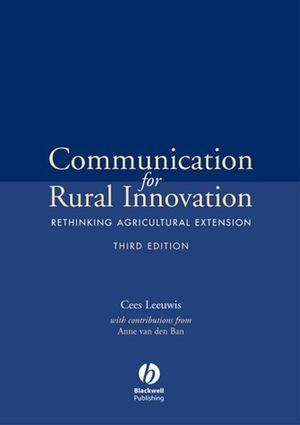

Most ebook files are in PDF format, so you can easily read them using various software such as Foxit Reader or directly on the Google Chrome browser.
Some ebook files are released by publishers in other formats such as .awz, .mobi, .epub, .fb2, etc. You may need to install specific software to read these formats on mobile/PC, such as Calibre.
Please read the tutorial at this link: https://ebookbell.com/faq
We offer FREE conversion to the popular formats you request; however, this may take some time. Therefore, right after payment, please email us, and we will try to provide the service as quickly as possible.
For some exceptional file formats or broken links (if any), please refrain from opening any disputes. Instead, email us first, and we will try to assist within a maximum of 6 hours.
EbookBell Team

4.3
78 reviewsSince the previous edition of the book, the number and type of organisations that apply communicative strategies to foster change and development in agriculture and resource management has become much more varied and this book is aimed at those who use communication to facilitate change in agriculture and resource management. Communication for Rural Innovation is essential reading for process facilitators, communication division personnel, knowledge managers, training officers, consultants, policy makers, extension specialists and managers of agricultural extension or research organisations. The book can also be used as an advanced introduction into issues of communicative intervention at BSc or MSc level.
Content: